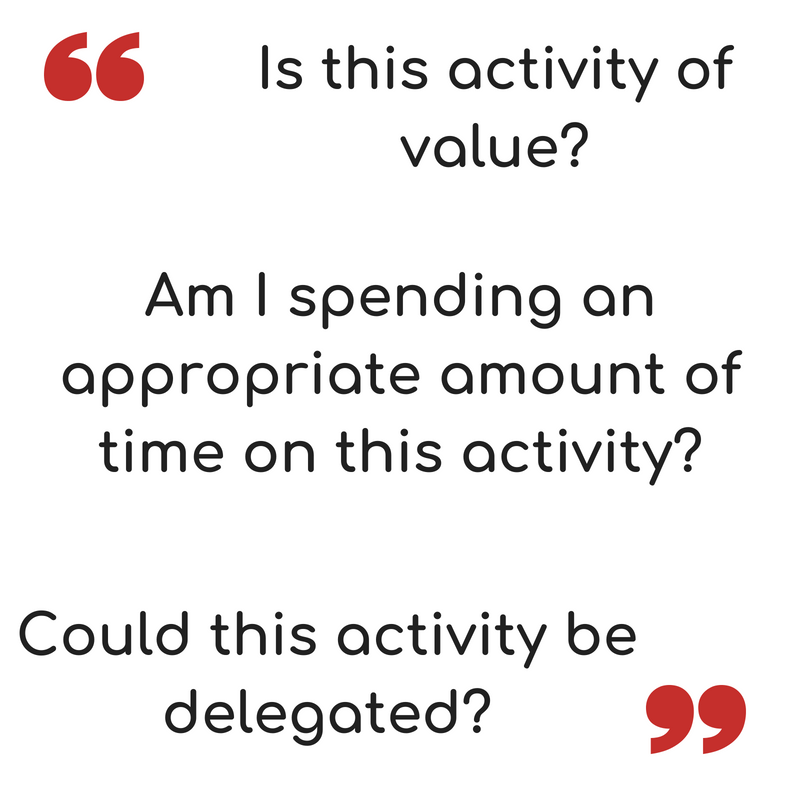Where does your time go?
“There are never enough hours in the day!”
We have all said “There are never enough hours in the day!” when we reach the end of the day and wonder where the time has gone and still have a long list of incomplete tasks. How we spend our time says a lot about who we are and if you feel
you don't have enough time in the day, it is important to look at how you spend
the time you do have.
For one working week, set yourself a task of assessing your time and to find out which areas are claiming your time more than others. Aim to understand how the different activities are of value to you and what you can do to adapt, accept or avoid them.
1. Begin by creating a weekly diary of your activities and keeping a note each day of how much time you spend on them:
2. At the end of the week, review your activities and the time spent. For each entry, ask yourself:
3.Based on your review, create your plan for action. Start putting in boundaries and working smarter. For each activity you have identified as claiming more of your time than others, think of productive ways to tackle them. Become aware of your limitations.For example:
- If you are distracted by emails and are continually checking and responding to them, set specific times throughout the day when you will review them and stick to this.
- If you are feeling out of control with your diary and are being booked in for meetings at unsuitable times via your colleagues Outlook calendar’s scheduling assistant, block book time out in your calendar so this is viewed as “busy” by your colleagues.
- If you need to avoid distraction by colleagues or phone calls so you can focus on a time sensitive project, consider booking a meeting room to work from for a day or set an appropriate outgoing message so your answer machine temporarily collects the calls.
- Practise negotiating your assignment responsibilities and timescales. Develop the ability to say “No” to taking everything on. This is particularly difficult to get into the habit of when you work in a giving profession like psychology and coaching.
- Eliminate or delegate unimportant tasks (to a virtual assistant!) and replace them with high value activities.
Unfortunately, not all activities can be adapted or avoided and there will be some tasks you simply have to accept along with the required time of which to undertake them!
4. Commit to your plan and you’ll soon begin noticing the positive and productive effects on your time.
M: 07511 534051
E: leyla@executiveva.co.uk












